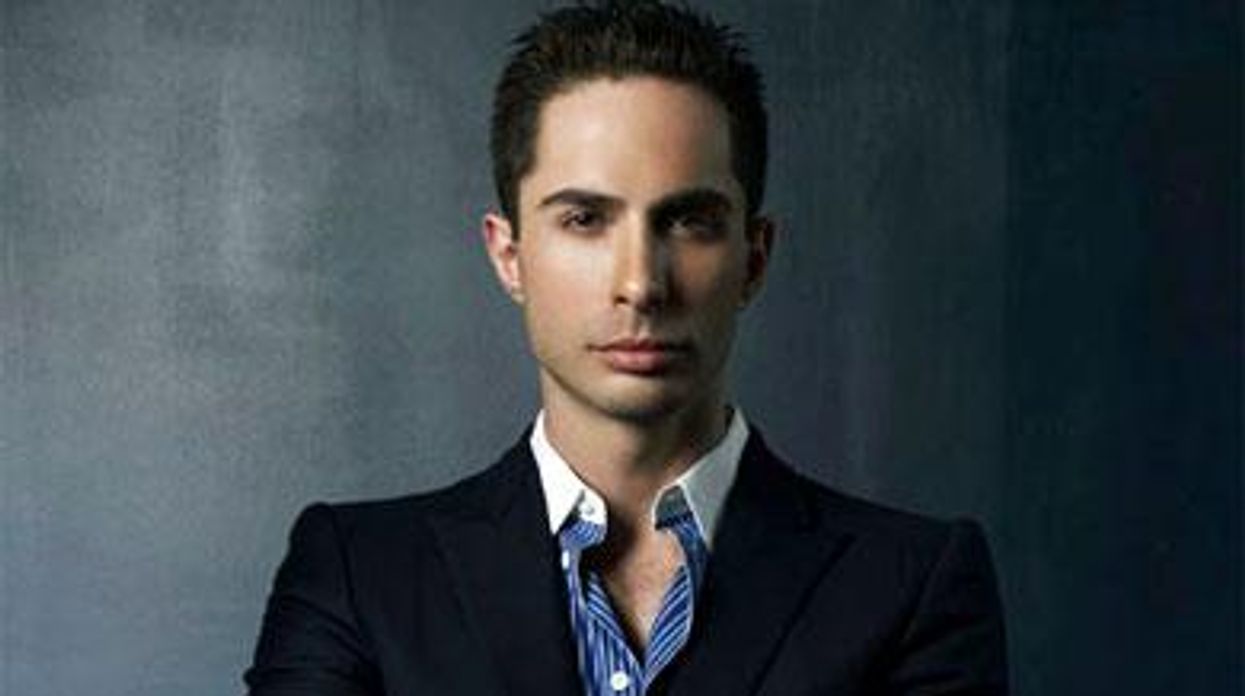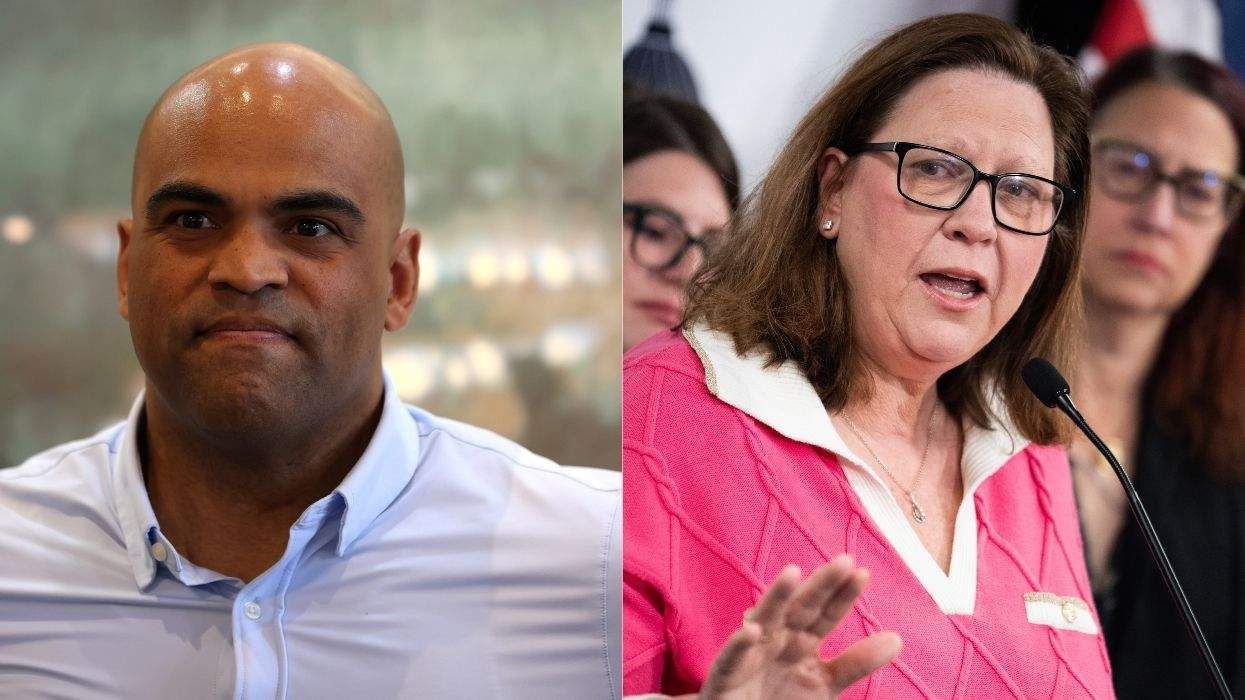COMMENTARY: I rarely watch television. Time is precious, and I don't want to waste it. But I have tuned in several times to watch Iranian president Mahmoud Ahmadinejad, the man who denies, among many other things, the existence of gay people in his country.
These have been depressing experiences. I can't help but ask myself, What happened to American journalism? What happened to the art of the interview?
Maybe Larry King, Katie Couric, and Christiane Amanpour should have read Oriana Fallaci's book Interview With History. Oriana Fallaci perfected the art of the interview. The book is a collection of her conversations with some of the most famous politicians in recent history, from towering figures like Golda Meir and Henry Kissinger to bloody murderers like Yasser Arafat and the shah of Iran. Fallaci's interviews were always direct and uncompromising. She would never let her target escape. She would bombard her interviewees with questions without ever allowing them to change the topic. When an interviewee would try to become evasive and talk around a question, the conversation would turn almost into an interrogation -- until the interviewee would surrender and answer the question. Sometimes repeating the same question more than 10 times, Fallaci would immediately confront any lie or half-truth.
In order to interview the shah, Fallaci went to Iran. She was not intimidated, not afraid (or maybe she was, but it never showed it in her questioning). Fallaci was fearless. She didn't ask questions a la Barbara Walters: "If you were a tree, what kind would you be?" Christopher Hitchens once said that her interviews with heads of state "make today's big-name interviewers look like powder puffs." Henry Kissinger said that his interview with Fallaci was the most disastrous conversation he ever had -- she exposed him as a self-righteous, pompous egomaniac.
But Ahmadinejad's conversations with Larry King and Katie Couric were definitely not a disaster for him.
American interviewers didn't go to Iran. They spoke with Ahmadinejad in the comfort and safety of American studios. They had nothing to fear. Yet they greeted this bastard, one of the bloodiest dictators of our time, who stole the last election, in the most polite and gentle way: "Thank you very, very much for coming here, Mr. President," said Couric. "It's always good to see you here," said King.
Larry King is actually the exact opposite of Oriana Fallaci. King will never insist or pressure. King did ask the right questions: Stoning of women? Promises to wipe Israel from the face of the globe? Nuclear ambitions? Massacre after the fraudulent elections? Denial of the Holocaust? But every time, Ahmadinejad was allowed to run away from the question and talk about what he wanted to talk about. Asked about why he denies the Holocaust, he talked about the mistreatment of Palestinians. Stoning of women? He never heard about that. Election fraud? American propaganda. Hangings of gay people? "We do not have such a phenomenon in Iran."
It was painful to see the half-smile and comfort with which Ahmadinejad was giving his answers. In fact, he wasn't answering questions at all. He was delivering monologues, always with an arrogant smirk on his face. And never once was he interrupted, never once taken to task for his lies. When Larry King asked about Ahmadinejad's denial of the Holocaust, you could see that it was a question that was deeply and personally important to him (King's relatives were killed in the Holocaust). And when Ahmadinejad evaded the question, you could see how irritated King got. Yet he didn't fight on. He simply followed with a softball about whether the United States and Iran will ever have a good relationship.
Christane Amanpour's style is a bit more challenging, but in the end she too surrendered to his lies. Ahmadinejad was able to go on for up to five minutes without any attempt to interrupt him. And during his interview in September 2009 with Katie Couric, when she showed him a picture of a Muslim woman who was murdered during the protests against the election, Ahmadinejad countered with a photo of a Muslim woman who supposedly was murdered earlier that year in Germany -- and shut her up, even though there is quite a difference between the state killing opposition members and a criminal murdering an individual.
Of course, there is one exception: Fox News. It has more viewers than all other cable news channels combined, and since all Ahmadinejad cares about is an exposure and fame, that's where he would naturally be. But he cares more about staying in a safe environment and would never go on Fox News because no matter what you think about Sean Hannity, Michelle Malkin, or Bill O'Reilly, he would never get a free pass. Any and all of them would destroy him.
And this is precisely what Larry King, Katie Couric and the others who are allowed to interview the most homicidal dictators are. They are respectful -- albeit sometimes irritated -- listeners who are afraid to interrupt. But sometimes interruption is important, vital, unavoidable. When an evil man is evading a question that has a deep moral dimension, he must be interrupted and forced to answer.
The softball treatment of Ahmadinejad allowed an evil ideologue and brutal dictator to present himself as a mainstream political figure. American audiences saw a suave, worldly president, a living lie. This gives a totally false impression about the man. But, more importantly, it's a callous betrayal of the Iranian opposition members who have risked and given their lives to fight the regime of which Ahmadinejad is the face. And that's a moment when American media has lost its moral standing in the world.















